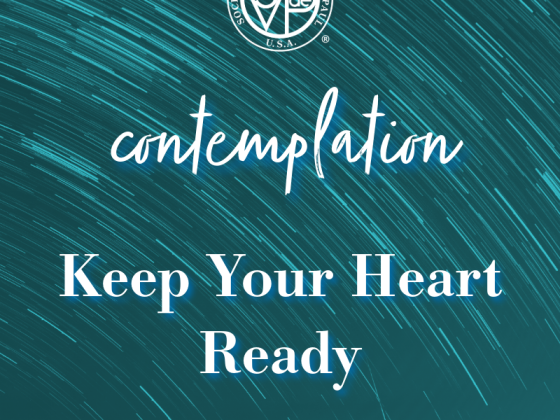There are times when the demands of serving the neighbor can weigh heavily on us, sometimes because there are so many calls to answer, and sometimes because our efforts often seem to be in vain; the poor remain poor, the struggling continue to struggle. We are called to serve in hope, but how do we raise our own spirits? How do we return to what Bl. Frédéric called “the rays of charity which at the beginning came sometimes to illuminate and warm our souls”? [Letter 90, to Curnier, 1835]
Our own physical rest and health, of course, is not only for our own benefit. As St. Vincent once explained to St. Louise in telling her to get some rest, “Increase your strength; you need it, or, in any case, the public does.” [CCD I:392] And as our Rule reminds us, “Vincentians are available for work in the Conferences only after fulfilling the family and professional duties.” [Rule, Part I, 2.6]
Resting our bodies is often enough to restore our energy, but not necessarily our zeal when we feel weighed down by the feeling that our work is not accomplishing enough; when the neighbor continues to struggle, no matter how much we help. It is at these times that it becomes most important to reflect deeply upon the nature of our works, and the purpose of our Society.
We are not the Society of Rental Assistance or Food Pantries. We serve in hope not only of offering some material relief, we serve in the hope of eternal life in Christ, and we visit the neighbor to share that hope through our friendship, our prayer, and our love.
In the history and traditions of the Society, and of the whole Vincentian Family, our visits have been not only to the poor in their homes, but to hospitals and prisons. As Chaplain of the Galleys, St. Vincent de Paul brought prayer, and hope, and the love of God to thousands of prisoners without freeing a single one. For the rest of his life, he could hardly speak about the galley prisoners without weeping.
The emotional burden we carry with us from sharing our neighbor’s suffering is part of our expression of love, and we can take great solace in knowing that we truly lighten their burdens by sharing them. And just as we share the neighbor’s burden, we pray that the neighbor may share our hope. We visit to show them that God has not forgotten them; that they too may share in the hope of everlasting life.
Knowing this hope in our own hearts, serving in His name and for His sake, may our hearts not be burned out, but on fire, and our souls “in a continuous state of joy and happiness”. [SWLM, A.14b]
Contemplate
Do I always seek first to offer the suffering of the neighbor to God, and the love of God to the neighbor?




What a wonderful reminder that we don’t always “fix” someone’s problem; rather we share their burdens